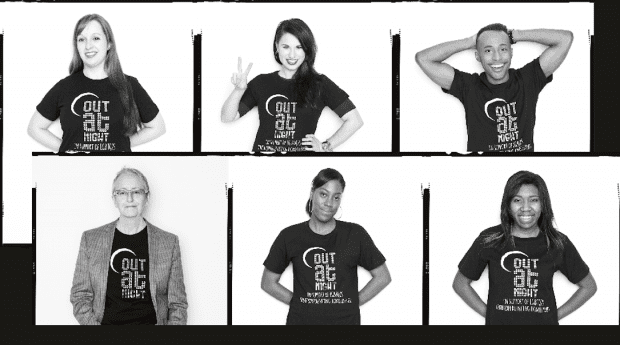Xtra Spark profiles current activism in our communities. This article stems from a partnership between Xtra Spark and Egale Canada in which we are supporting their organization with targeted media coverage that gives our readership pathways to take action.
When Egale was formed in 1986, it was predominantly a legal advocacy organization. It has been involved in 23 cases through the courts, 11 of which appeared before the Supreme Court of Canada. Most notably, it was involved in the successful movement to legalize gay marriage in 2005. Since then, the organization has transformed the work they do into research, continued advocacy and activism, and have opened Egale Youth Outreach — a crisis centre offering critical support for homeless and street-involved LGBT youth located in downtown Toronto.
“Since marriage, we have shifted our focus to other things like education and research into homophobic, transphobic and biphobic bullying,” Egale’s executive director Helen Kennedy says. “We’ve done a lot of work on LGBT teen suicide and, most recently, on LGBT homelessness.”
The organization now has ambitions to open crisis centres for at-risk LGBT youth across Canada, to further their research on homelessness and suicide within the community and to help pass Bill C-279, an act aimed at amending the Canadian Human Rights Act and Criminal Code to recognize gender identity.
Currently, there are no statistics on LGBT teen suicide in Canada — a crucial gap in research and education that Egale hopes to resolve.
“We’ve held two summits over the course of the last three years to address this issue, where we’ve brought experts from all over North America to talk about it. As a result of these summits, we have developed a protocol for Canadian coroners on appropriate questions at the time of death.””
Research conducted by Egale has found that up to 21 percent of Toronto’s LGBT homeless population report fear in accessing existing services. Egale Youth Outreach provides resources for these youth with counselling, resources for accessing housing, and emergency housing.
Kennedy says that since the centre opened in 2014, hundreds of under-housed and homeless youth have walked through their doors, underlining the dire need for housing resources and counselling in Toronto.
“It’s really been a journey and a challenge this past year. So, something we’d like to do is open similar crisis counselling centres across the country, because we know that Toronto is not the only city that has these problems.”
egale.ca


 Why you can trust Xtra
Why you can trust Xtra